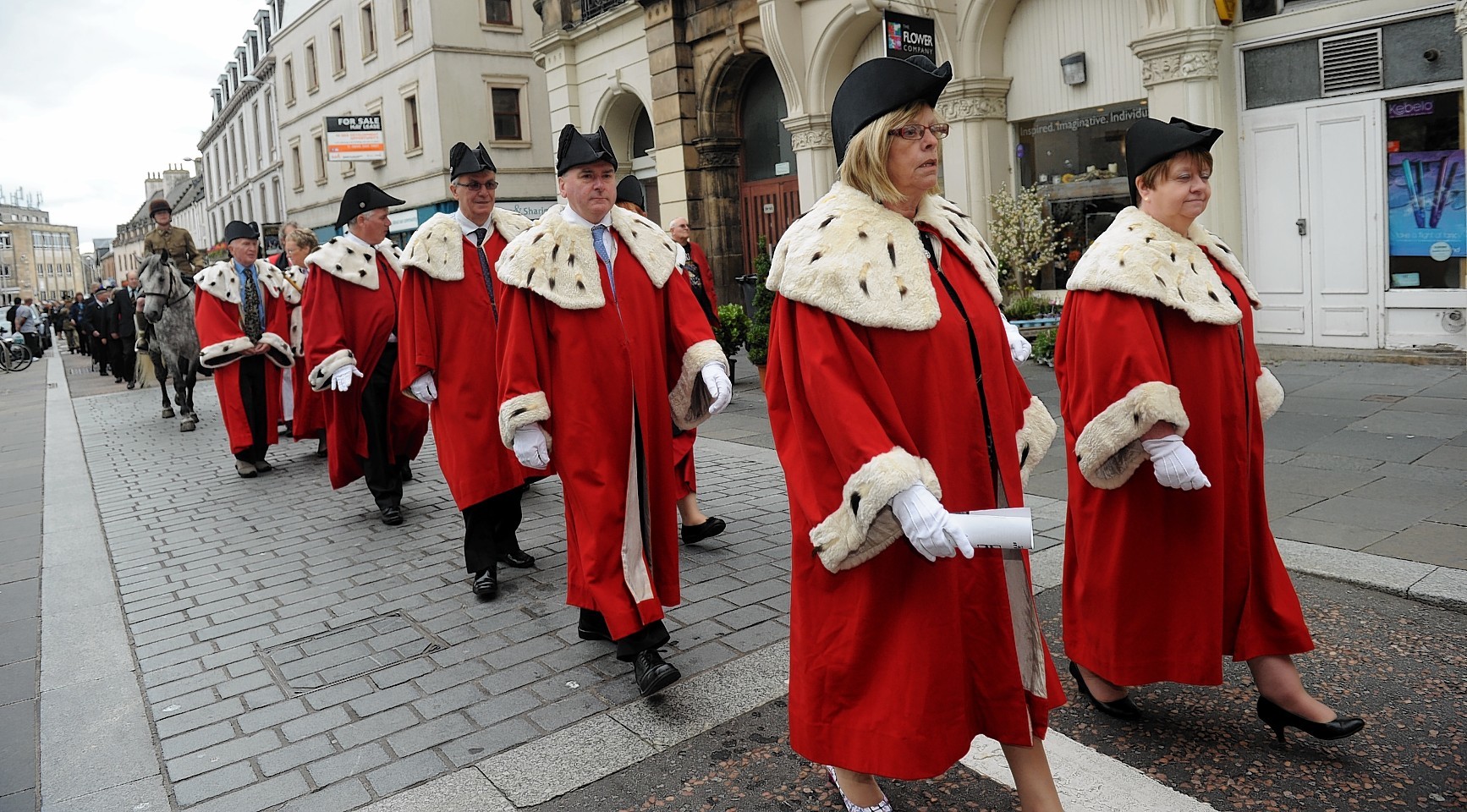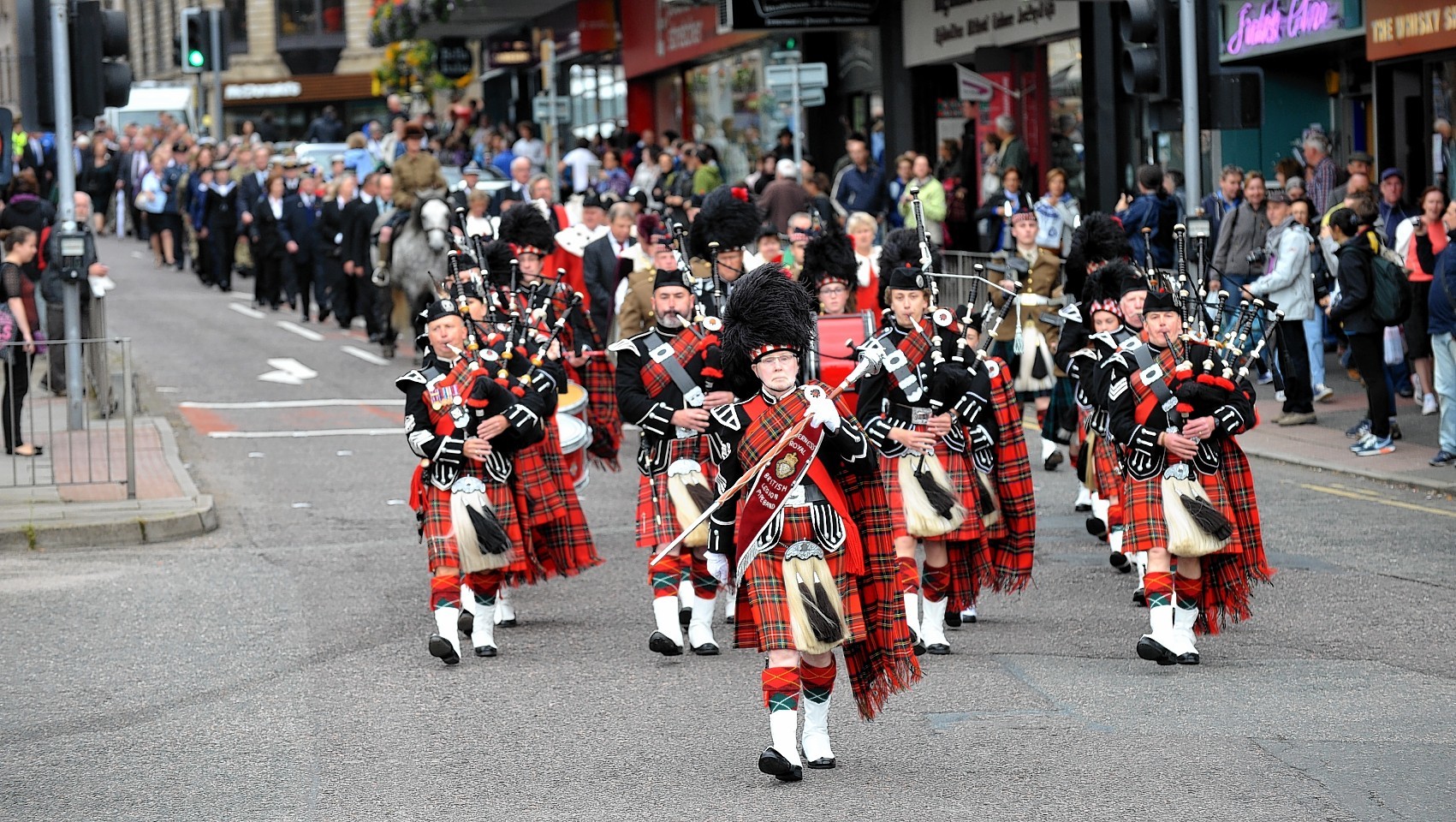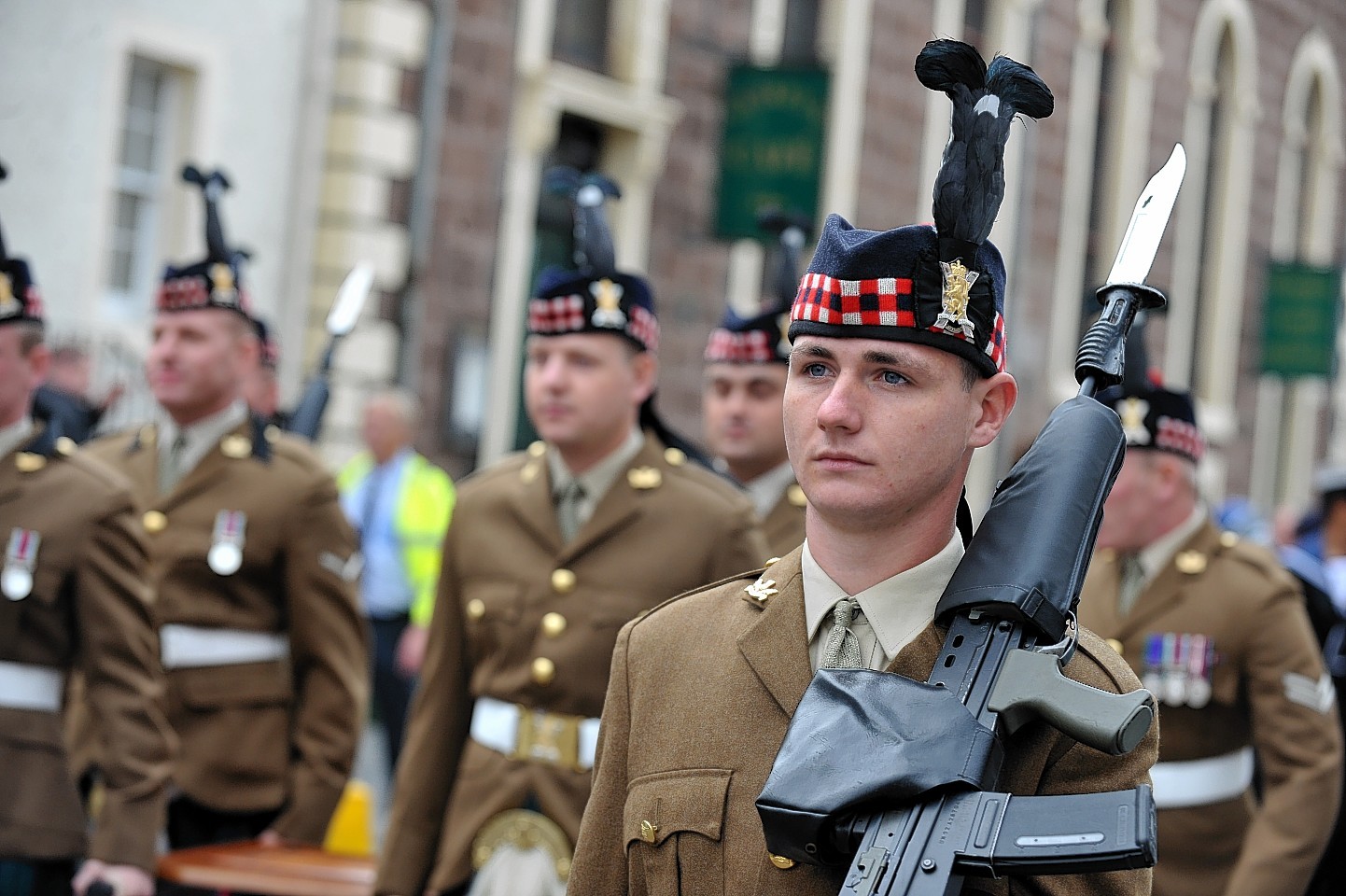A leading churchman said a commemoration held in Inverness yesterday served to “express the devastating losses to Highland communities”.
The Very Rev Canon Alexander Gordon, Provost of Inverness Cathedral, was speaking at the second of two services held in the city marking the centenary of the start of World War I.
He revealed that his maternal grandfather was killed in the conflict, on his mother’s sixth birthday, and is buried in a war grave in a small cemetery in France.
Yesterday’s poignant proceedings began with a service in Old High Church, where the Rt Rev Mark Strange, Episcopalian Bishop of Moray, Ross and Caithness, spoke of those killed.
During the service, a candle was lit in memory of all those who lost their lives in the conflict, and placed in a special container where it will burn for four years – equal to the war’s duration.
Following the Old High Church commemoration, the light was carried in a procession to St Andrew’s Cathedral, through city centre streets which came to a standstill as it passed.
Led by Inverness Royal British Legion Pipe Band, then the 3 Scots Regiment of the Black Watch, members of various organisations followed, including Sea Cadets, Boys’ Brigade, and Air Training Corps.
In his address to the gathering, Canon Gordon said: “This is a memorial to express the devastating loss to Highland communities, where for many it was their first experience outside their village.
“Officers were told to ‘sharpen their swords’, which was no use against heavy artillery and nerve gas – this was a different kind of war.
“The British Army had ruled supreme in the world, and was not used to losing battles, and 16million dead is a testament to the pain and horror of this war.”
Communities on the other side were decimated also, illustrated by a poem which was read out to the hushed church.
Written by a German schoolboy in 1914, he describes local soldiers going off to war bedecked in flowers – even the horses were similarly decorated.
Within months, he wrote, many young woman in his village had become widows as the soldiers never returned.


